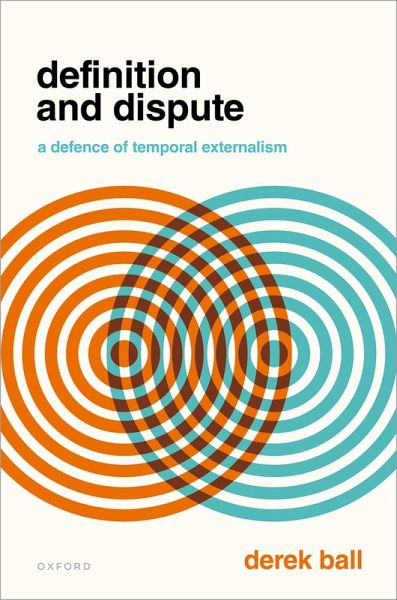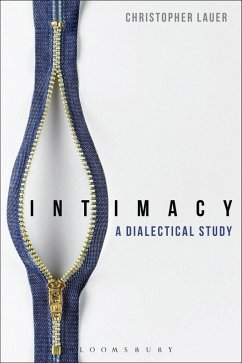
Definition and Dispute (eBook, PDF)
A Defense of Temporal Externalism
Versandkostenfrei!
Sofort per Download lieferbar
47,95 €
inkl. MwSt.
Weitere Ausgaben:

PAYBACK Punkte
24 °P sammeln!
Many of our deepest disagreements turn in part on matters of definition. Philosophers have long discussed the definitions of knowledge, art, truth, and freedom, and social and political questions about personhood, health and disease, marriage and gender are also commonly thought of as turning in part on definitions. This book contributes to our understanding of how we engage with questions and disagreements of this kind. It argues that disputes about matters of definition are not just about the meanings of words or our concepts, and they do not typically involve change of meaning. Instead, it ...
Many of our deepest disagreements turn in part on matters of definition. Philosophers have long discussed the definitions of knowledge, art, truth, and freedom, and social and political questions about personhood, health and disease, marriage and gender are also commonly thought of as turning in part on definitions. This book contributes to our understanding of how we engage with questions and disagreements of this kind. It argues that disputes about matters of definition are not just about the meanings of words or our concepts, and they do not typically involve change of meaning. Instead, it develops a conception of definition on which engaging in an investigation or a discussion helps determine the meanings of our words without changing them; what is determined is the meaning our words had all along. This temporal externalist view - that what happens at the end of our investigation or discussion can play a role in determining what we meant and thought throughout - puts us in a position to see why typical ways we engage with questions of definition make sense, and are not confused or in need of revision. The book develops this style of view in unprecedented detail, and shows how it helps make sense not only of definitional disputes, but also of disagreements about matters of taste (such as discussions of whether a particular food is delicious, or a certain film is funny). The book also offers powerful new criticisms of currently popular philosophical claims: that disputes about definition should typically be understood as merely verbal or as matters of metalinguistic negotiation or conceptual engineering; that there are inconsistent concepts, which can explain our engagement with some philosophical problems and paradoxes; and that relativism provides the best way understanding of our claims about matters of taste.
Dieser Download kann aus rechtlichen Gründen nur mit Rechnungsadresse in A, B, BG, CY, CZ, D, DK, EW, E, FIN, F, GR, HR, H, IRL, I, LT, L, LR, M, NL, PL, P, R, S, SLO, SK ausgeliefert werden.













